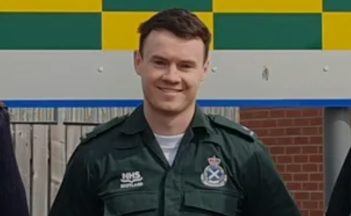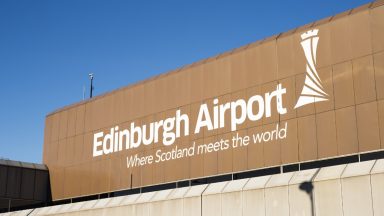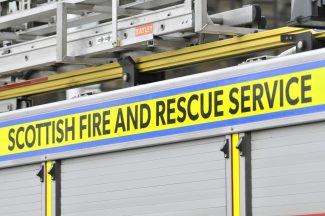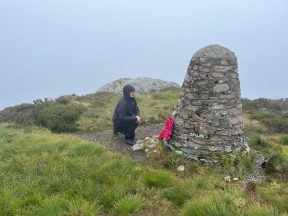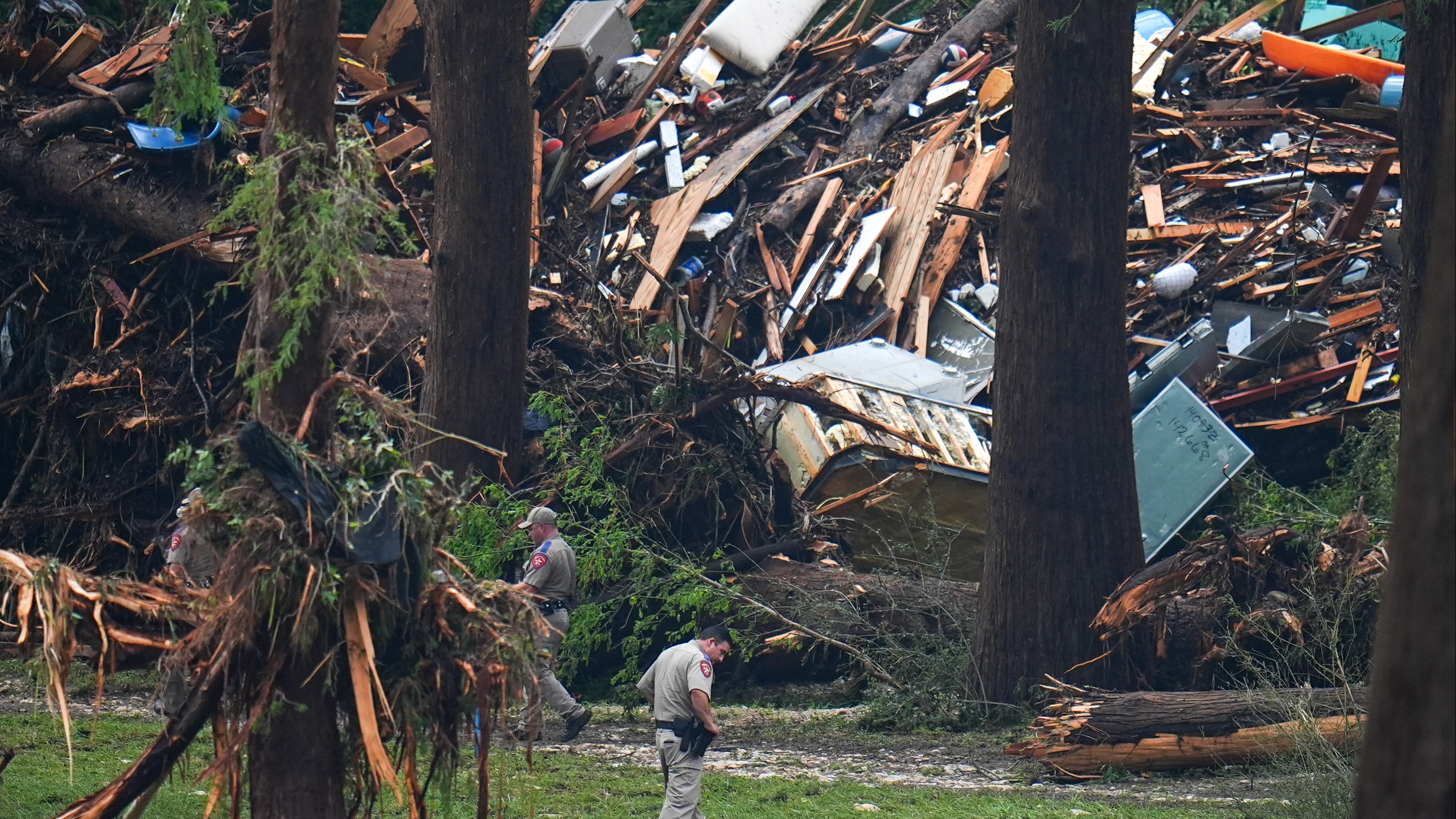With an estimated 30 million journeys to be made on the UK’s road before Christmas – experts are warning traffic jams can be avoided for those prepared.
The RAC’s data shows the highest number of journeys in over a decade will be made in the UK in the build up to Christmas day.
Road experts are calling Friday, December 20 and Saturday, December 21 ‘Frantic Friday’ and ‘Snarl-up Saturday’ with major congestion expected across the country.
Data provided by transport analytics specialists INRIX indicates lengthy traffic jams are expected towards the end of the year.
The worst times to travel in order to avoid traffic jams is said to be between 1pm and 6pm and most days over the festive period.
Over seven million journeys are expected to be completed on at least one of the days over the week until Christmas Eve.
What causes traffic jams and gridlock – what can drivers do?
According to experts, traffic jams are caused by drivers tailgating and not leaving enough space between themselves and the car in front.
Looking ahead further on to stretches of road beyond a small number of cars in front can reduce congestion.
Drivers can also divert on to other major roads in order to keep their journey going, rather than staying on congested motorways.
Rod Dennis, Breakdown Cover Expert for the RAC, told STV News: “There are ways to avoid traffic jams but it generally takes travelling at unsociable hours.
“The reason why the roads get so busy is because people want to complete Christmas journeys.
“Due to public transport reliability, the cost of that, the impact weather can have on transport it means that road-based transport is generally the obvious option.
“If you want to avoid the worst of the jams, you have to travel outside the core middle part of the day.
“If you can travel overnight, that is the best time.”
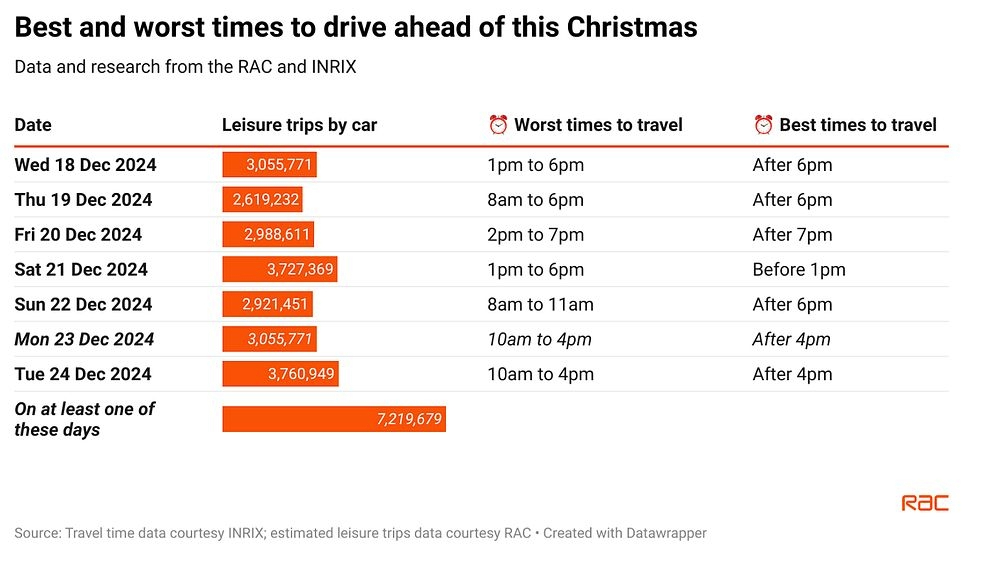 RAC/INRIX
RAC/INRIXHe added: “There is no exact science to traffic jams – people must plan ahead as much as possible.
“In terms of when they decide to travel and when they’re on the road such as avoiding tailgating, leaving plenty of space between you and the vehicle in front.
“Drivers must look as far ahead as possible to judge what is coming up. Whether or not you need to divert from a major road to another one if that will keep your journey going.
“Its important not to just look at the vehicle in front of you – look a fair bit beyond that as well. Judge what the traffic is doing and drive accordingly.”
He continued: “If something happens on a major road the impact is felt much more.
“For so many cases outside our urban centres such as Edinburgh and Glasgow, people are entirely dependent on their vehicles, especially at Christmas.
“That is a large reason why there are ongoing issues around congestion.”
Accidents and breakdowns – why incidents on the road are ‘avoidable’
More than 2,000 people were killed or seriously injured on roads in Scotland last year, according to figures released in November up 7% since 2022.
Department for Transport (DfT) stats showed the highest number of road accidents took place in the Glasgow City council area, with 240 people losing their life or sustaining serious injury in 2023 – up 3.9% on the previous year.
The Shetland Islands saw the biggest percentage increase in road casualties – rising from four in 2022 to 11 in 2023, an increase of 175%.
Road casualties remained the same in Moray, the Orkney Islands and Renfrewshire, while East Dunbartonshire saw a notable decrease.
The national road safety charity Brake is calling on the UK Government to support a new Road Victims’ Charter that demands essential action for road victims.
Ross Moorlock, chief executive at Brake, said: “Road casualties are not just statistics. Behind every number is a grief-stricken family whose lives have been changed forever in an instant.
“The demand on our service continues to grow as road deaths and injuries show no sign of reducing. Every year, more families suffer the devastating impact of a road crash. Every year, more and more families come to us in their darkest and most difficult times.
“Road victims have been the forgotten and neglected victims for far too long and that has to change.
“Our families have told us what they want and what they need – and that includes recognition of the trauma of sudden road death and injury, parity with other victim groups, sentencing to fit the crime and lessons learned to prevent future road death and injury.”
Transport secretary Fiona Hyslop said: “We must never lose sight of the fact that one death on our roads is one too many. As always, my first thoughts are with the families and friends who have tragically lost a loved one, and those whose lives are changed forever.
“Road safety is a priority for the Scottish Government and its partners and we remain absolutely committed to working together to reach our ambitious goals.
“However, despite our best efforts, I am aware of the challenges we face in meeting casualty reduction targets for 2024 and that the number of fatal casualties for 2024 is tracking 26% above the same period last year.”
The Government said £36m is being invested this financial year to deliver a wide range of initiatives aimed at improving driver behaviour and ultimately reducing the number of casualties on our roads.
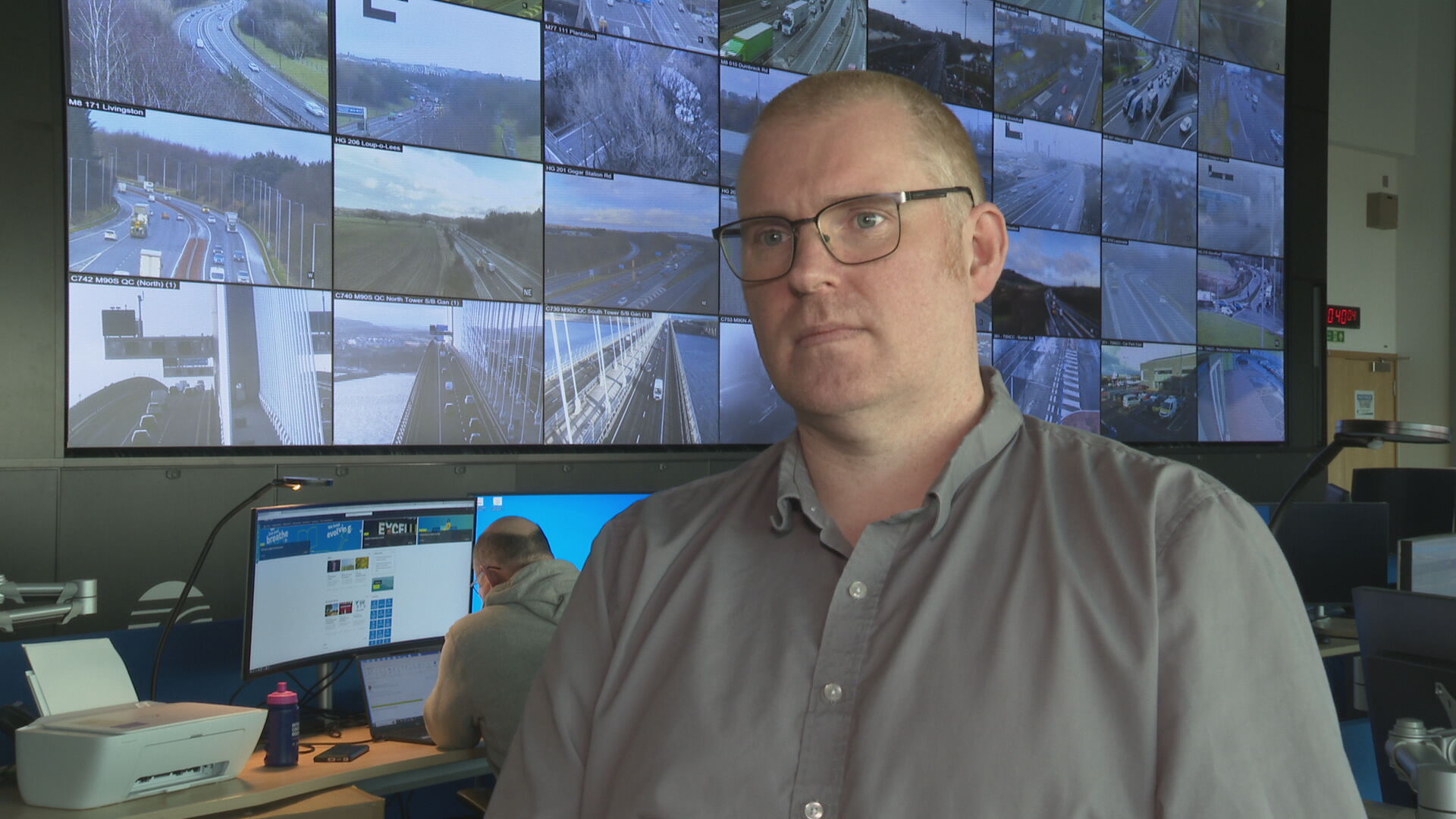 STV News
STV NewsThe RAC stressed the importance of drivers not ignoring ongoing issues prior to setting off during busy periods.
A lot of the breakdowns road recovery workers see are said to be “avoidable”, according to experts.
Douglas Cairns, Traffic Scotland Operator Manager, told STV News: “Over the festive period we’re asking the public to plan ahead.
“Make sure they are aware of any weather warnings that might be place and that your vehicle is ready for the winter.
“Drivers should be able to get from A to B as quickly and painlessly as possible.
“We will be working round the clock with partners to mitigate any effects of congestion impact.”
He added: “The weekends will be busiest with Christmas in mid week this year, we are going to see additional travel earlier next week as well.
“We’re asking drivers to take that into consideration you may be subject to disruption or delay.”
Tommy Deans, BEAR Scotland’s South East Network Manager said: “Roads can be busier than normal during the festive period and seasonal weather can result in difficult driving conditions, so wherever possible we avoid scheduling any road works requiring restrictions at this time of year.
“BEAR Scotland’s fleet of gritters will be working day and night to treat the roads where required and keep them safe and clear. Our incident support vehicles will also be patrolling trunk roads to assist any motorists that encounter difficulties.
“If you need to travel, our advice is to check the Traffic Scotland website for live traffic information before setting out and listen to local and national radio travel bulletins for updates. You should also make sure your vehicle is ready for winter conditions, with plenty of screen wash and de-icer and some emergency supplies.”
Is the idea of ‘rush hour’ now a myth?
The concept of a traditional ‘rush hour’ has changed since the Covid pandemic, according to experts.
With changes in work patterns, remote and hybrid working, behaviour on the roads has changed throughout the long-held rush hour of early morning and evening.
Especially at Christmas, drivers are being warned there is a long stretch of the day in which roads will feel like rush hour.
Mr Dennis added: “The concept of rush hour does get muddled slightly as we approach Christmas.
“There has been a marked change in driving behaviour in the UK due to Covid.
“The peaks we always tended to see Monday through Friday in the morning and evening aren’t necessarily there in all parts of the country on those days anymore.
“The picture changes at Christmas – we have the last of the year’s commuter coinciding with people on getaways.
“If you’re travelling greater distances – as tends to happen around Christmas – you’re bound to be on the road during core hours in the middle of the day.
“That’s one of the reasons we see so many jams. The earlier you leave in the morning or the later in the evening the better chance of avoiding queues.”
Follow STV News on WhatsApp
Scan the QR code on your mobile device for all the latest news from around the country


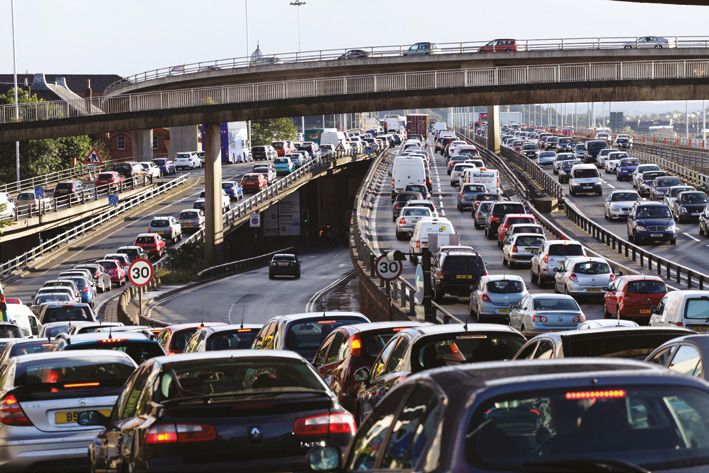 GCC
GCC
